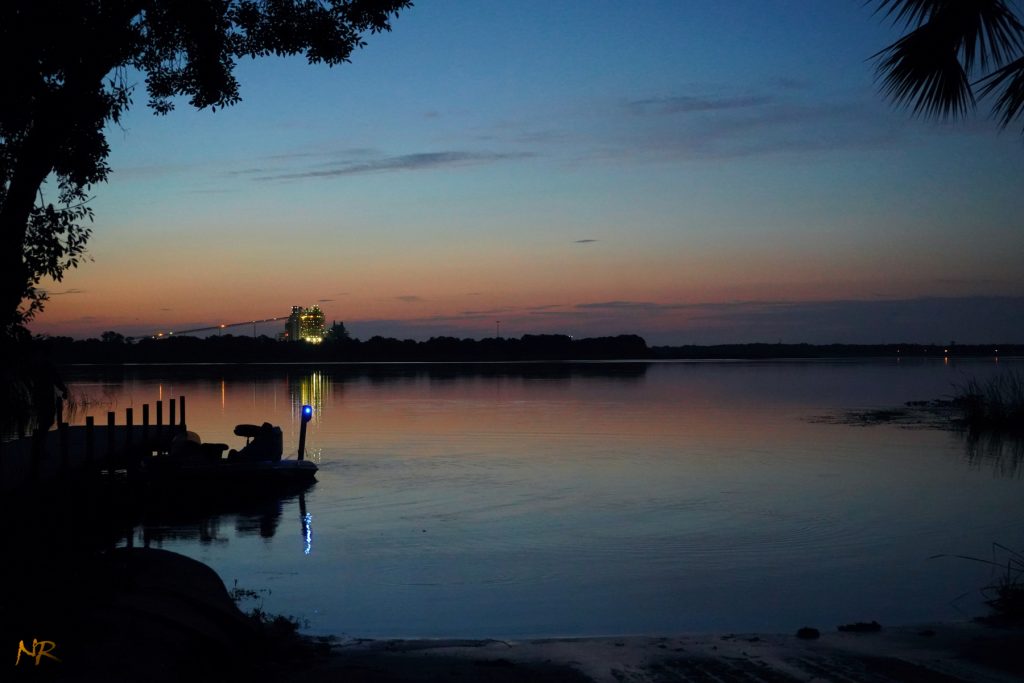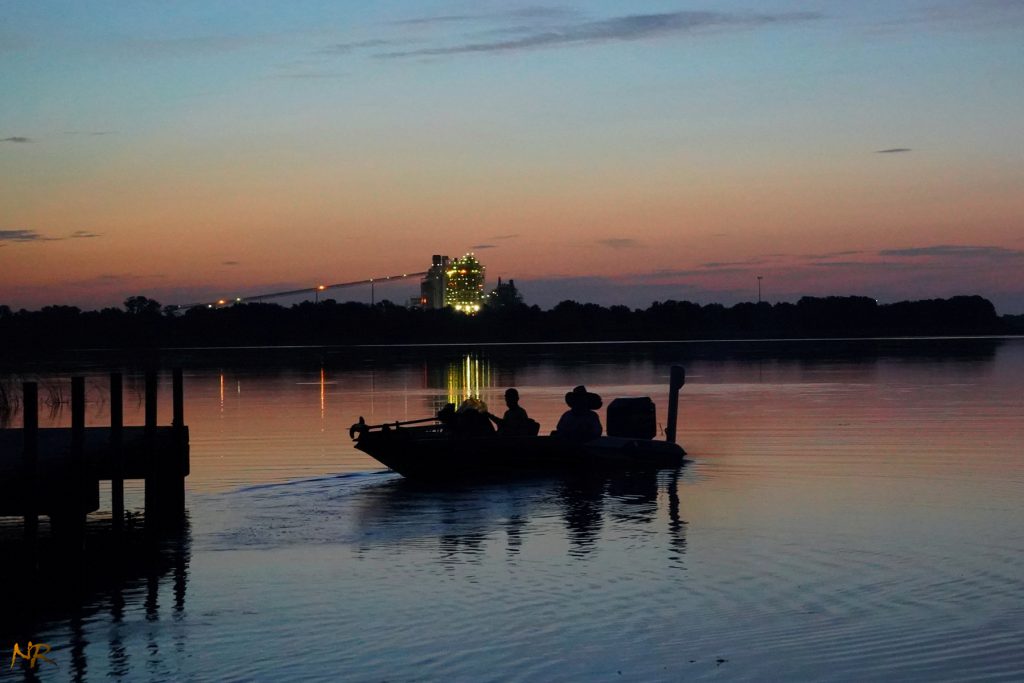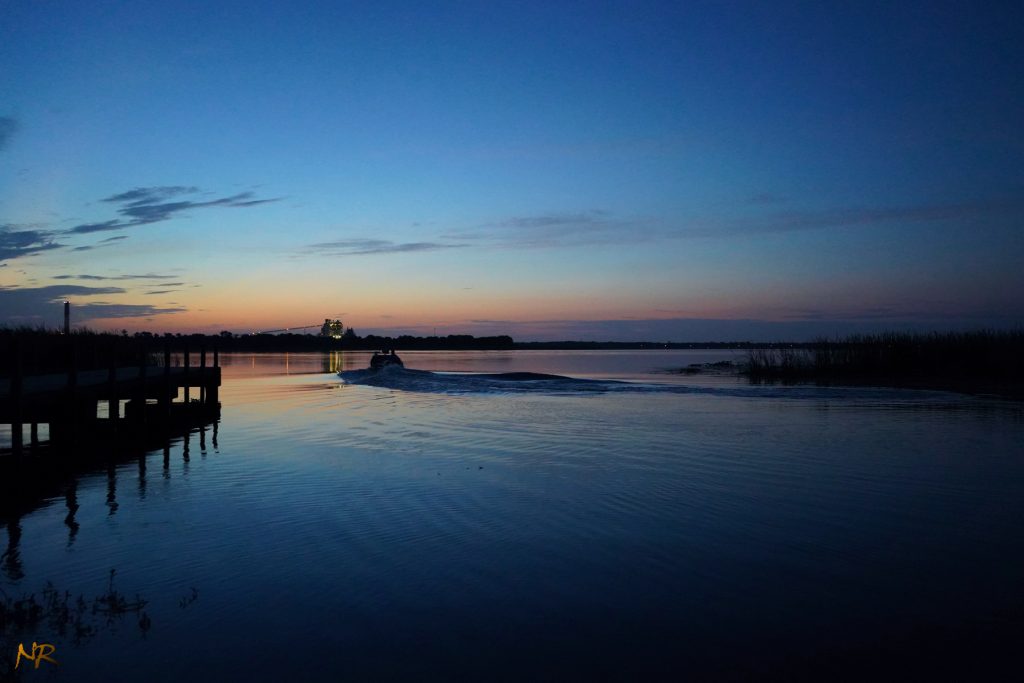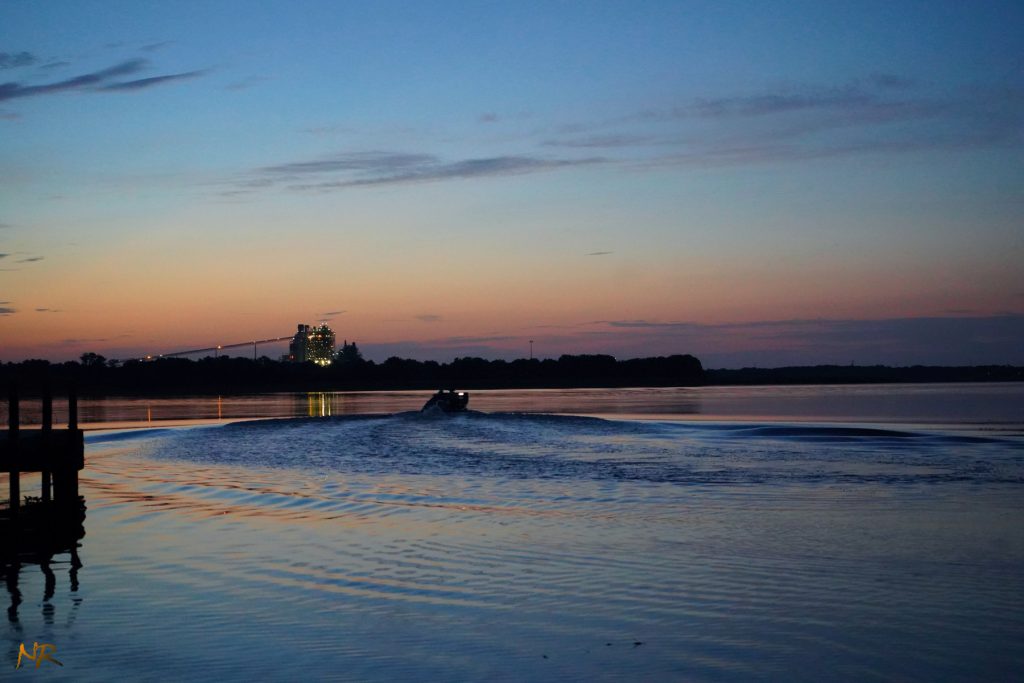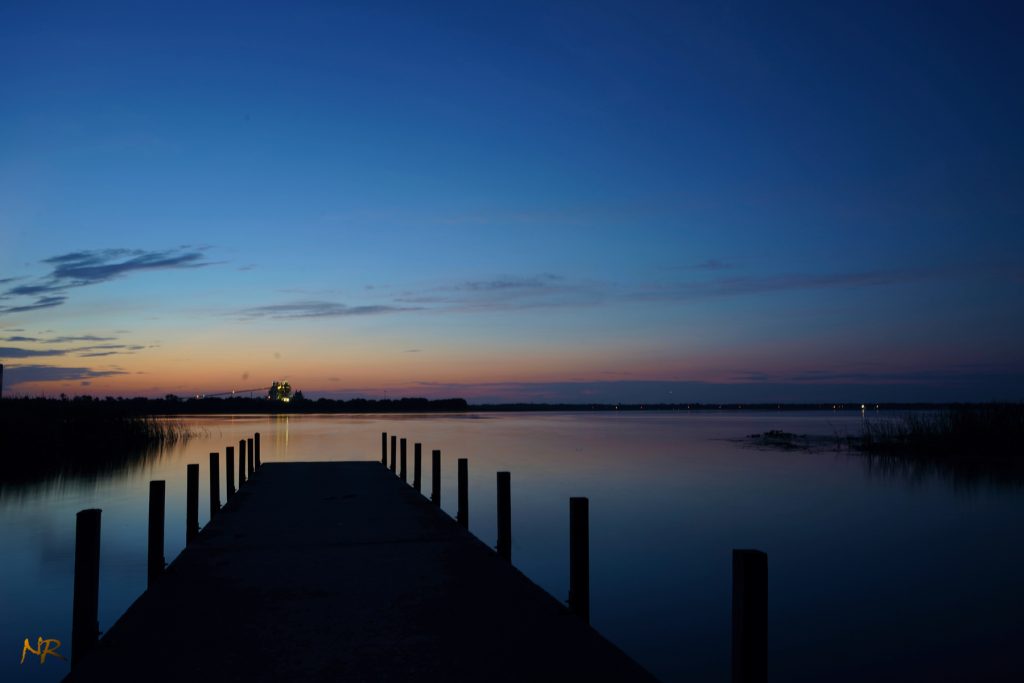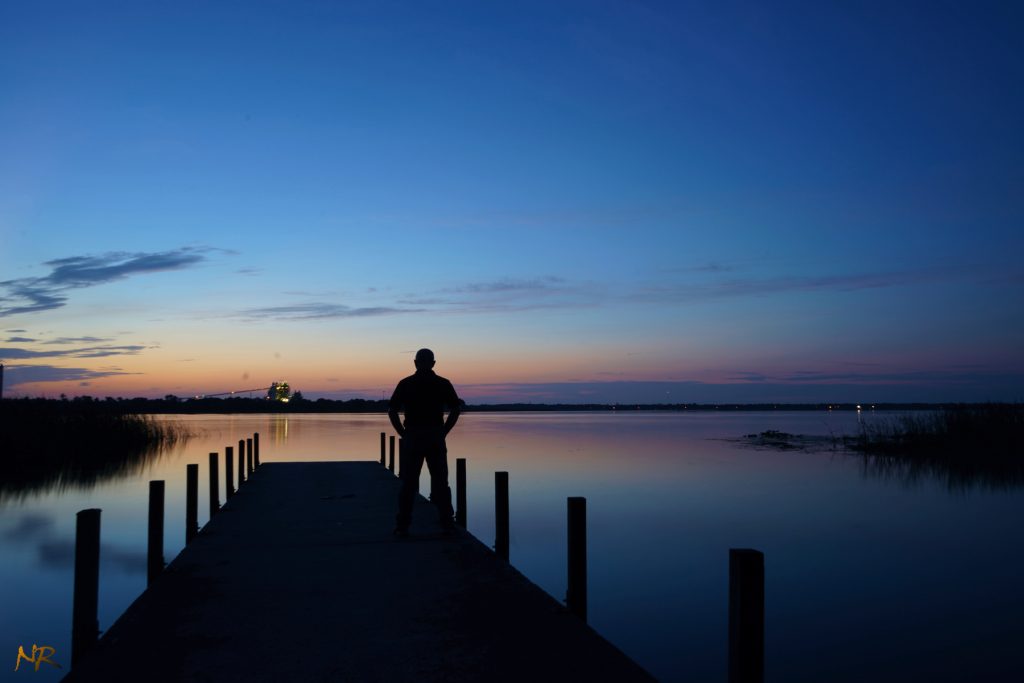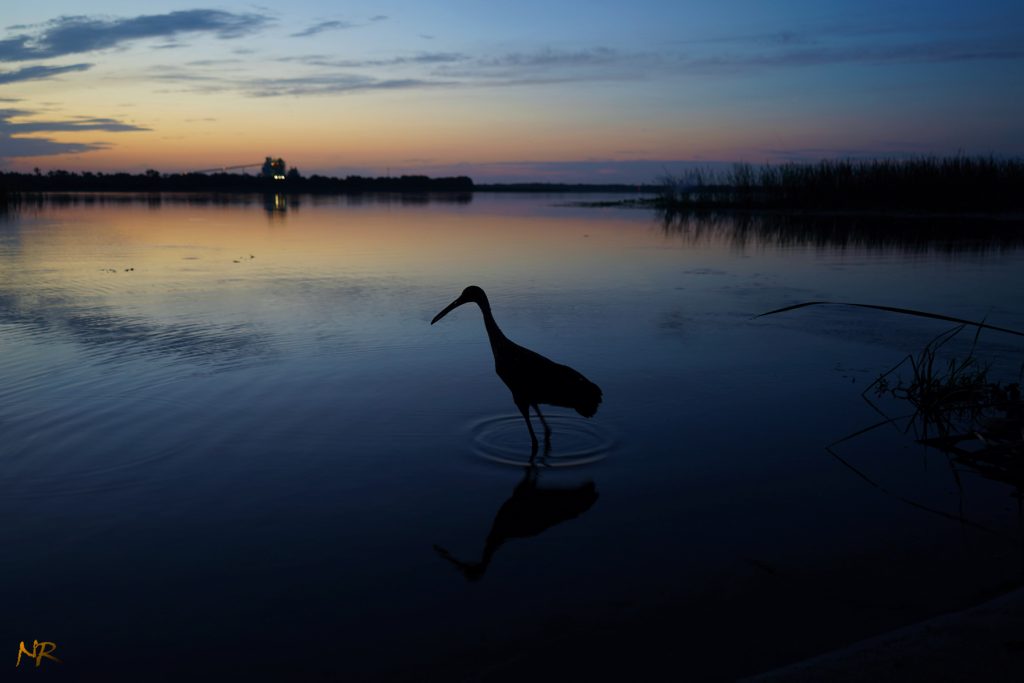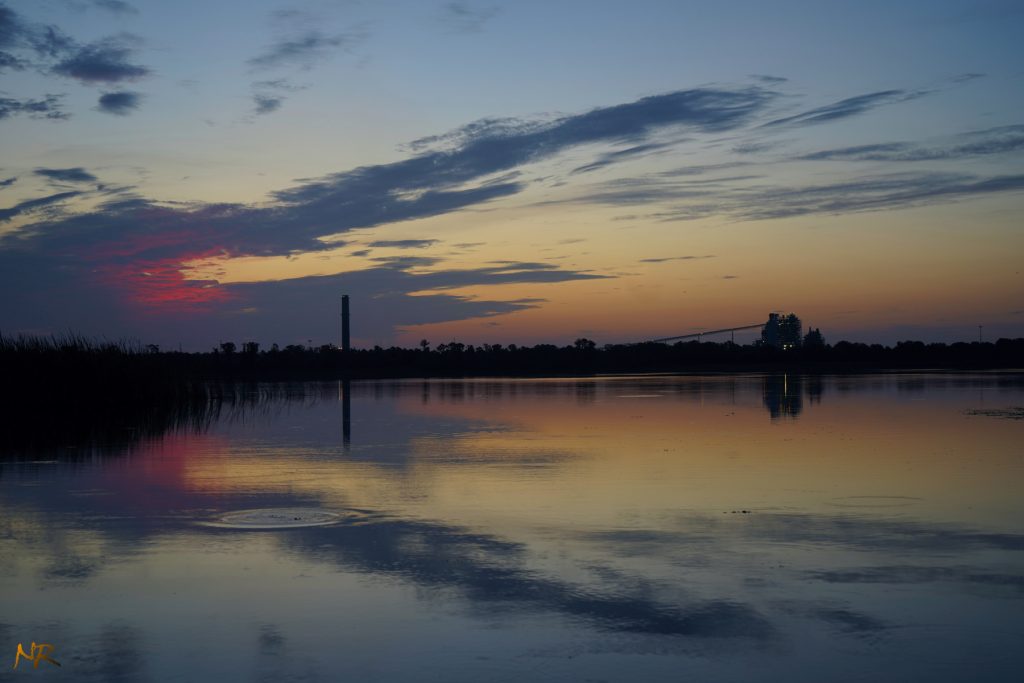It was one of those mornings where everyone upstairs was fed and those in lock down had been fed and released into the darkness.
The Keurig finished its noisy dark offering and all in the world became calm.
I was standing there in the office and all but LOLA were now outside. While the coffee had been filling up in my cup, I had been checking my phone and when I got to the weather app and it said mostly clear, I double checked the time and said “What the hell … I can make it for twilight!”
So, I snapped the lid onto the paper cup, grabbed the camera from upstairs and set off towards the brightening skies at Lake Parker.
I knew it would be a push because I didn’t really have any slop time in the drive. I needed most lights to be green and they were. Those that weren’t, I tried to circumvent where possible and so I found myself pulling in by the boat dock with five minutes to spare.
There were a couple of early morning boaters already in the water and about to head off, so I hopped from the car and began shooting immediately so as not to lose them.
As they pulled away, I settled the camera on the tripod and began to play with some of the manual settings and I was able to see in LCD screen that it seemed to be doing the early sky justice. The colors looked genuine for what my eyes saw and at the end of the day that it what I generally aim for.
If I can get the camera to see what I see, then I feel I am in control of the situation.
Anyway, I have attached a number of the shots and they show the progression of dawn from when I got there until I left. Hope you enjoy!
When I got back to the office and loaded the pictures on the screen, I made a second cup and began to go through them. It’s a great way to relax and enjoy the fruits of your labor, as you decide which ones you like and which you don’t.
Right from image one, though, I was immediately pissed off. There was a big blurry piece of dirt right in the middle of the picture. Every picture. It was something on the lens and it sat front and center on each picture as I advanced through them.
I was seriously annoyed. Yes, I was able to remove it with Corel Photopaint but that isn’t the point.
A dirty lens is unacceptable. Photography 101 leads off with how important it is to keep your lens dirt free. And I failed!
In situ at the boat dock, I was unable to see it because the screen on the camera is so small. But on my computer screen it presented itself proudly and a dog with a mallet up his ass would have winced at how obvious it was.
I can understand in part that when I got there I was in a hurry to catch the boaters, so that is what initially caused me to not clean the lens, but beyond that, it was all me.
And I realized while angry that this has happened to me several times before. It is occasionally something on the front lens but it might also be specks of dust on the sensor that found their way in while I was changing lenses.
Howsoever it appears, it is the photographer’s job to remove it and these are a habitual blind spot (no pun intended) for my nature shoots.
A combination of an aging pair of eyes, and tiny screens or viewfinders are partly responsible. But you would think after the first few times, I would learn. All it really needs is a solid routine or process that cleanses the lens each time before the first picture is taken.
Why is it that I can’t master that?
In fairness, I tend to get distracted by the excitement of the situation happening around me and this is often the cause.
And that is what made me think of today’s blog topic. Because so many of us have habitual blind spots in our lives and in very many cases we even know about them.
We find ourselves committing the same mistake over and over and it isn’t because we are stupid. It is because we are predisposed to making the error.
For example, 9 times out of ten I will type teh instead of the. It isn’t that I don’t know how to spell teh word. Shit, there I go again. For some reason my ham-fisted efforts at typing have a synchronization problem between left and right hands and my left index finger always seems to win the race.
Thankfully, most programs like this one now underline in red for me that I have made a mistake and I go back and fix it. But it slows down my typing immensely. I have found myself trying to find sentences that I can write that don’t have the word “the” in them. How crazy is that?
In real life, our repeat errors are not conveniently underlined and they often are only noticed much later, long after the mistake has had its effect.
So why do we keep making errors or why are we repeatedly open to enabling the same mistake to happen?
Is it a simple wiring in our brain that is slightly off? Yes, it could be.
But it is more likely that (like me this morning) we become distracted and unfocused by something else that is happening around us to where our brain is fully engaged in that and not in watching out for our blind spot.
I think we can all agree that if we deliberately watch out for our blind spot, it doesn’t happen.
But our brains are semi-autonomous creatures and they makes certain decisions by themselves without consulting us in teh process. Dammit, there I go again.
Our subconscious runs an enormous portion of our life. And as we get older, it seems to run even more. Routine tasks, things that we have done before, get mostly handled without our thinking of them. We drive the same way home without thinking. We eat our meal without thinking. We shower without thinking.
But if we are playing a new game or working on a new project, we take much greater care and the only mistakes we are likely to make are caused by inexperience. Our brains engage.
When we are younger, our brains also engage more because most experiences are new to us.
So the real trick is to try to keep new experiences happening in our lives as much as possible. Whatever age we are.
New experiences keep our brains engaged and also, incidentally, keep life more interesting.
I have found that having to learn new stuff or try new things can be painful inasmuch as they take us out of our comfort zone. But, they are also truly rewarding.
Traveling the same direction on our journey always feels easier and by avoiding the challenge of new things, we reduce our chance of failure. This is why most of us do it.
But they also perpetuate our blind spots. We continue to see things from the same perspective only and repeatedly make the same errors. We either never learn or we learn incredibly slowly.
It’s one of the reason I love hanging out with people half my age. They help steer me in directions that I might otherwise not have gone.
Now if I could just figure out how to keep my lens clean, all would be good in teh world!
Damn, damn, damn … there it goes again!
… just a thought.


